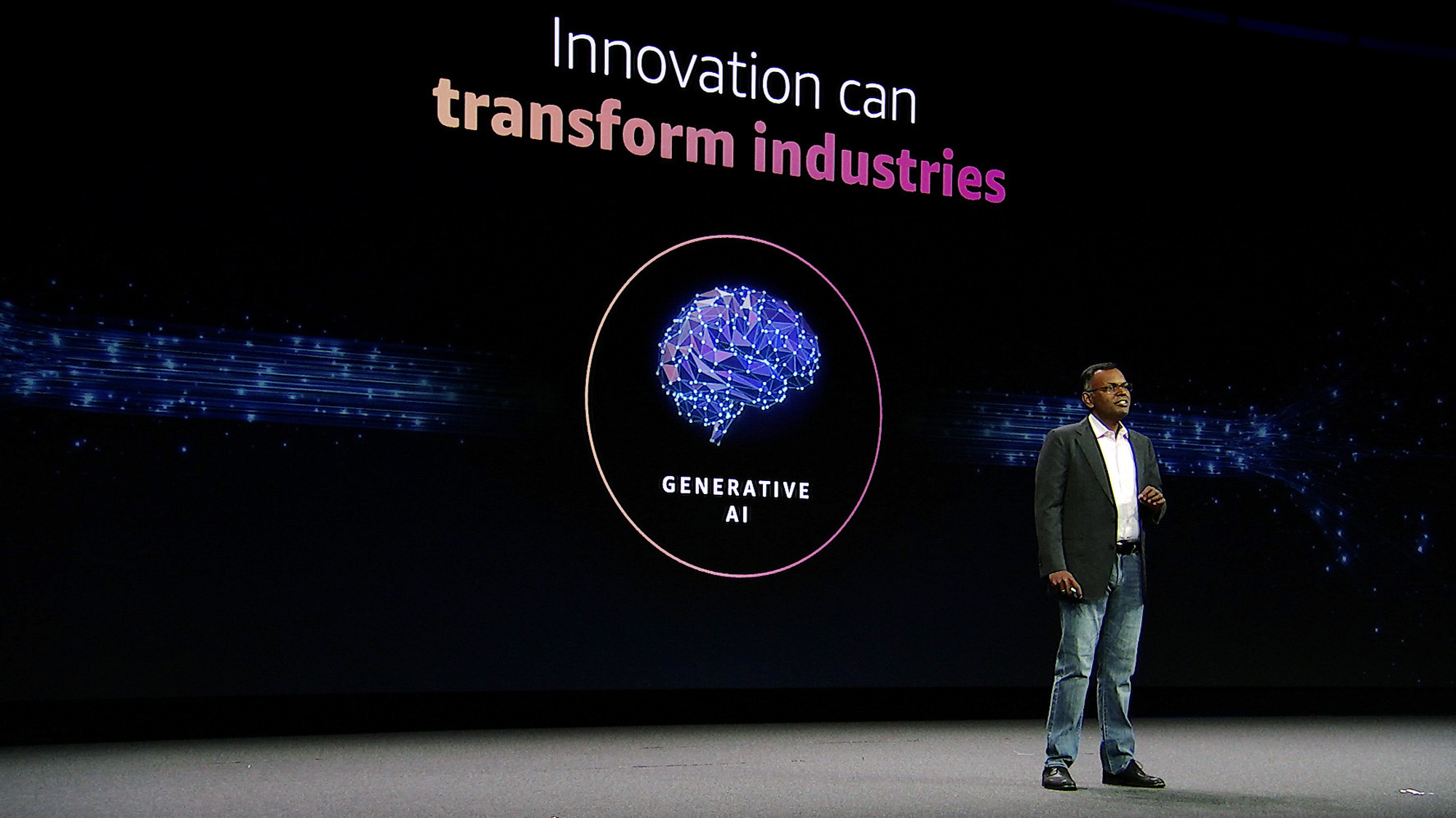Generative artificial intelligence (GenAI) will transform every application, industry and business and is finally taking shape due to an assortment of technological advances, Swami Sivasubramanian, vice president of database, analytics and machine learning (ML) at Amazon Web Services (AWS) said yesterday.
Speaking at the AWS Web Summit in New York City during a keynote address where he outlined seven new offerings all related to GenAI, he said he expects that “AWS services and capabilities will democratize the use of GenAI, broadening access for all types of customers, across all lines of business – from engineering to marketing to customer service to finance and sales.
“You might be wondering, with so much potential, why has this technology that has been percolating for many decades suddenly seen so much traction?
“GenAI has reached its tipping point, the convergence of technological progress and the value of what it can accomplish today. That’s because we have a massive proliferation of data and the availability of extremely scalable compute infrastructure, and (with) the advancement of ML technologies over time, generative AI is finally taking shape.”
In a blog released on Tuesday, Sivasubramanian wrote that “AI used to be the domain of a small group of researchers and data scientists. Today you can’t open a news feed without some reference to AI, and specifically generative AI.
“Think back to when a new set of technologies or a tech-enabled gizmo completely grabbed your attention and imagination. The first personal computers. The advent of the internet and the web. Email. Smartphones. These things changed our lives in ways that were hard to anticipate, and to perhaps appreciate, until we had some time with these technologies under our collective belts.
“We are at that moment again with AI and ML. I believe (they) are the most transformational technologies of our time. Which is why, for more than 20 years, Amazon has invested heavily in the development of AI and ML, infusing these amazing capabilities into nearly every business unit.”
AWS’ aggressive new GenAI strategy was evident with the release of an assortment of new offerings at the one-day conference that included:
- The expansion of its foundation model (FM) service Amazon Bedrock to include the addition of Toronto-based Cohere as an FM provider, and the latest FMs from Anthropic and Stability AI, as well as a new capability for creating fully managed agents in just a few clicks, which AWS called a “game-changing feature for builders, with no expertise required. Customers can use Amazon Bedrock to build and scale generative AI applications with a selection of industry leading FMs by accessing a simple application programming interface (API), all in a secure environment and without managing any infrastructure. The expansion of Amazon Bedrock to include a new model provider, leading FMs, and the ability to easily create managed agents offers customers the broadest and most comprehensive toolset to leverage generative AI for any use case.”
- The ability for AWS customers to now create agents for Amazon Bedrock to enable automation of complex tasks and deliver customized, up-to-date answers for their applications, based on their proprietary data. AWS said that with just a few clicks, the agents “will automatically break down tasks and create an orchestration plan – without any manual coding, making the task of programming GenAI applications easier for developers.
- The preview release of the vector engine for Amazon OpenSearch Serverless. The vector engine “provides a simple, scalable, and high-performing similarity search capability in Amazon OpenSearch Serverless that makes it easy for you to build modern machine learning (ML) augmented search experiences and generative artificial intelligence (AI) applications without having to manage the underlying vector database infrastructure.”
- The addition of generative business intelligence (BI) in Amazon’s QuickSight service, which is designed to help an organization’s employees easily find answers to questions about their data, AWS said, adding that “these capabilities will help break down silos, making it even easier to collaborate on data across an organization and speeding up data-driven decision-making.”
- The launch of AWS Healthscribe, a generative AI tool which AWS said is designed to “ease the paperwork burden for health care professionals. (It) uses speech recognition and Amazon Bedrock–powered generative AI to create transcripts and generate easy-to-review clinical notes, with built-in security and privacy features designed to protect sensitive patient data.”
- New Amazon Elastic Compute Cloud (Amazon EC2) P5 instances powered by NVIDIA H100 Tensor Core GPUs, which AWS said “are optimized for training LLMs and developing GenAI applications.” An instance, the company said, “in cloud lingo is virtual access to a compute resource – in this case, compute powered by H100 GPUs.
- The introduction of seven free training courses designed to help developers as well as “executives seeking to understand how GenAI can address their business challenges.”
In his blog, Sivasubramanian wrote that when it comes to GenAI implementation, “the key is to ensure that you actually pick the right AI-enabled tools and couple them with the right level of human judgement expertise.
“These models are not going to replace humans; they are just going to make us all vastly more productive. More importantly, you need to tune these models with your data in a secure manner, so, at the end of the day these models are customized for the needs of your organization.
“Your data is the differentiator and key ingredient in creating remarkable products, customer experiences, or improved business operations.”





